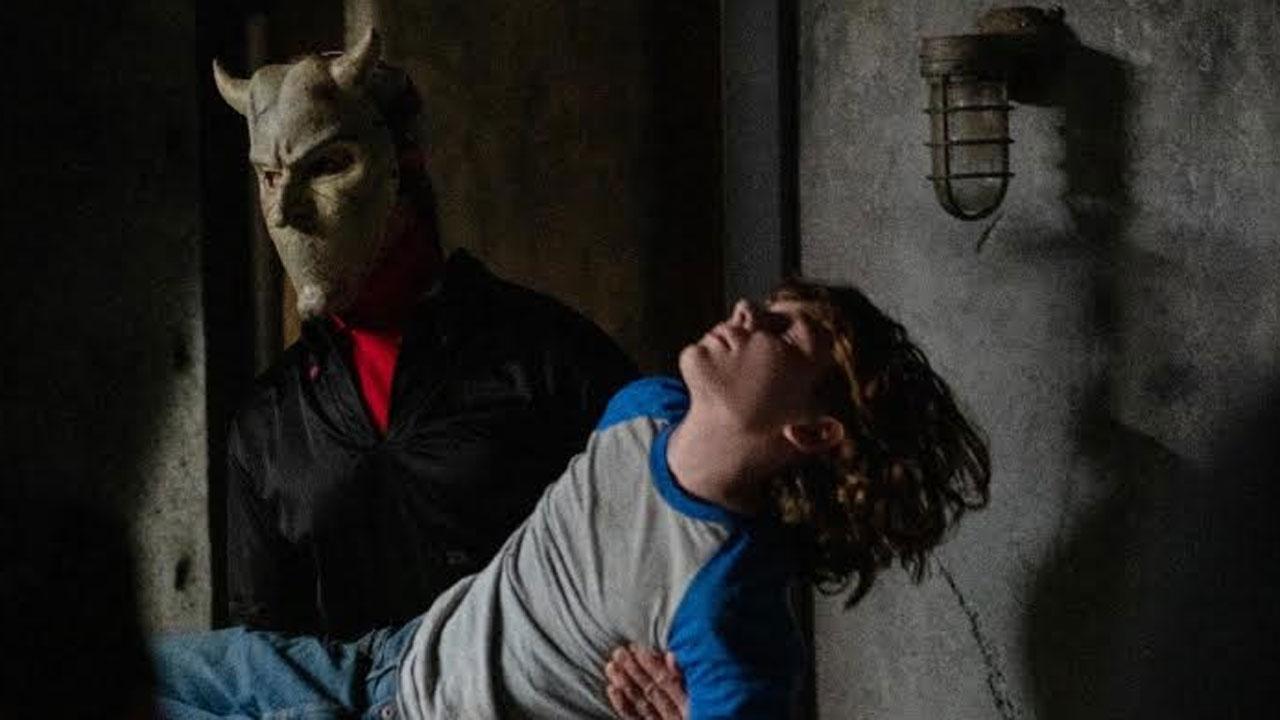Helmer Derrickson and cinematographer C. Robert .Cargill create a multi-layered narrative crafted with attention to detail and psychological implications that just can’t be ignored

A still from the film
The Black Phone
Cast: Ethan Hawke, Mason Thames, Madeleine McGraw
Director: Scott Derrickson
Rating: 3/5
ADVERTISEMENT
This film is based on the short story of the same name, written by Joe Hill, the son of Stephen King. The film chronicles a rather horrific, suspenseful tale of The Grabber, a child killer who snatches teen boys in broad daylight and the community around and the cops are clueless as to the abductor-murderer. It’s a conceptual horror-thriller that uses imagination, psycho-suggestion and visual entreaties to convince us of its efficacy as scary movie that increases its dread level as the story chugs along.
It’s 1978, we are introduced to Finney (Mason Thames), a pitcher whose prowess on the diamond doesn’t prevent him from being bullied between classes. He is a self-effacing, lonesome pre-teen who has a kid sister Gwen (Madeleine McGraw) and an angry, alcoholic father (Jeremy Davies) who finds it difficult to cope with two kids and doesn’t hesitate to take his frustrations out on them. Gwen has clairvoyant abilities which her father would rather keep secret. Finney is the next abductee on The Grabber’s list. (We get to know of the other victims through posters stuck o community walls). Trapped in a soundproof basement where screaming is of little use, he has nowhere to go. Soon he starts getting calls from a disconnected phone on the wall. Finney, who knows of the other boys who have been abducted by the remorseless killer, discovers that he can hear the voices of the previous victims through the phone... And they are encouraging Finney to make his grand escape from certain death.
The film opens to an idyllic suburbia only to be shocked and stupefied by the unchallenged abductions. That calm leading to violence, is juxtaposition that becomes highly effective. The vintage tinted cinematography and production values are stylishly suggestive of ’70s suburban USA. Earthy tones, the neon glow of police lights, shocking color of red blood, grainy texture, and evocatively filtered light make the horror look downright scary. Even the concrete of the basement with its weathered look covered with dried blood suggests of a violence that is unfettered and gory. The crystal perfect sound design by Aidin Ashoori and redolent background sound track help sway us gently into the eerie set-up that steadily starts creeping you out.
Helmer Derrickson and cinematographer C. Robert .Cargill create a multi-layered narrative crafted with attention to detail and psychological implications that just can’t be ignored. Ethan Hawke, who wears a Halloween mask for most of the runtime, as The Grabber does a wonderful job as the regressed adult avenging his childhood humiliation through acts of violence and suppression on today’s kids. He makes his characterized personality reversal a validating tool for all the excesses he executes. Thames and McGraw also display an assured finesse with their expressions of fear, anger, desperation etc. as they navigate through the trauma of broken homes and a scary world. Derrickson must be appreciated for creating such a frightening and effective horror film.
 Subscribe today by clicking the link and stay updated with the latest news!" Click here!
Subscribe today by clicking the link and stay updated with the latest news!" Click here!







